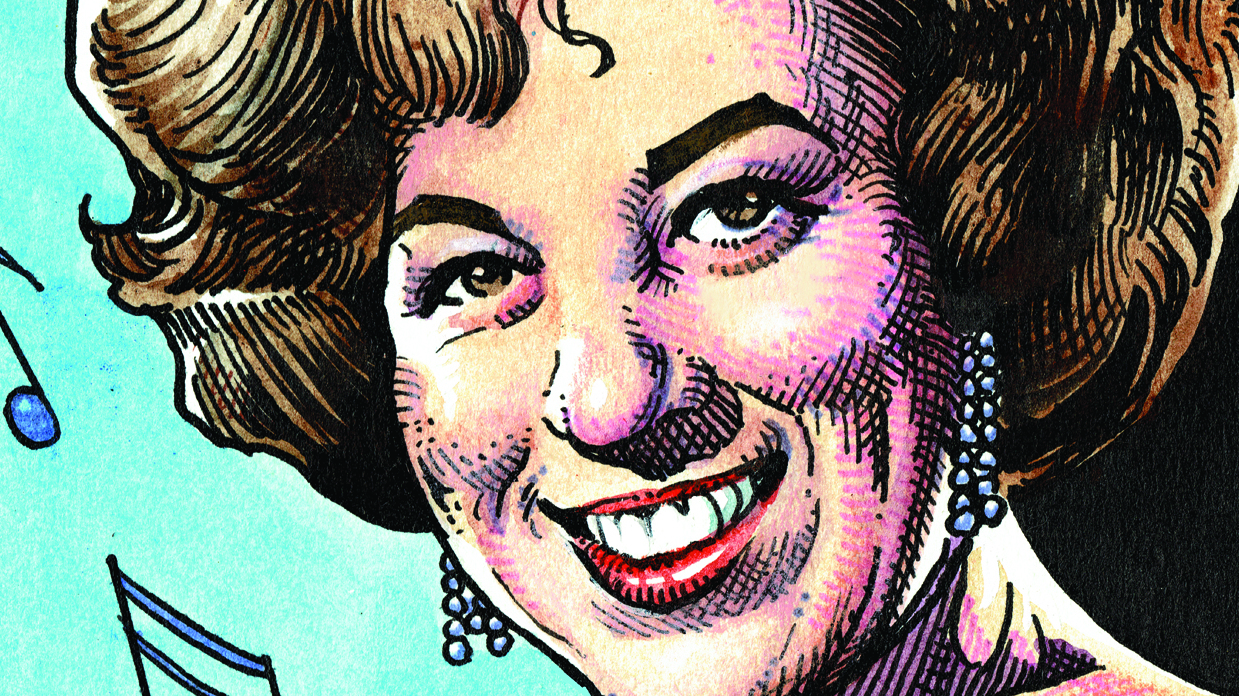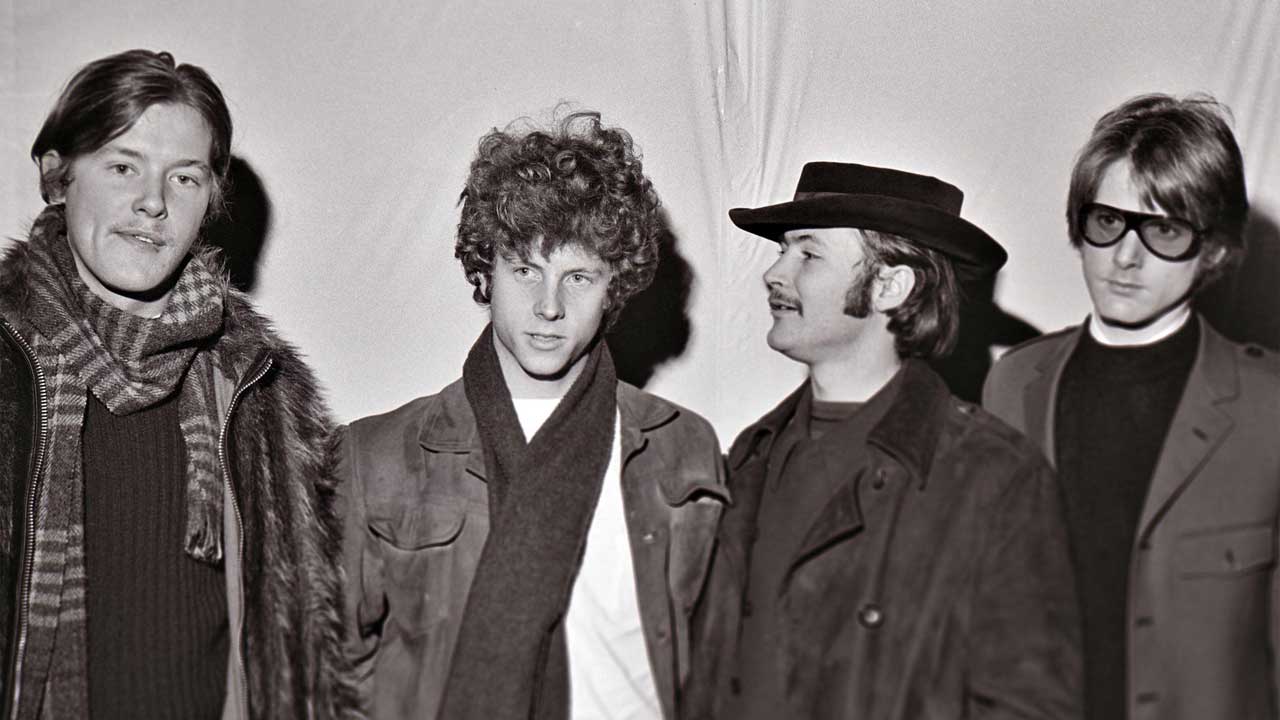William Stout's Legends Of The British Blues: Ottilie Patterson
The US artist’s ongoing celebration of the most important British blues musicians continues with his portrait of a Northern Irish revelation.

Select the newsletters you’d like to receive. Then, add your email to sign up.
You are now subscribed
Your newsletter sign-up was successful
Want to add more newsletters?
Before Ottilie Patterson arrived on the scene, the very idea of a soft-spoken Northern Irish white woman earnestly duplicating classic African- American blues styles must have seemed absolutely outrageous, if not quite simply absurd. She sang beautifully, with an earthy specificity and empathetic understanding of the musical genre, however, which muted any potential criticism. Early in her career, The San Francisco Examiner excitedly proclaimed her to be “the world’s only Irish blues singer”. And later, as she became established, the woman born in the small County Down town of Comber on January 31, 1932 proved that geography was no boundary when it came to blowing perceptions out of the water and making the blues her own: George Melly would later rate her alongside no lesser talent than Bessie Smith.
THE YOUNGEST OF four kids in a musical family, Ottilie began studying classical piano at the age of nine. She received no formal training as a singer. In 1942 she happened to see the Bing Crosby film Birth Of The Blues.
“There was a funeral scene where the black people were all singing,” recalled Patterson. “That is when I turned to jazz and blues.” She began to use her personal spending allowance to purchase any piece of sheet music with “blues” in the title.
In 1949, her art studies at Belfast College of Technology led her deeper into the blues. Fellow student Derek Martin taught her boogie piano, introducing her to Jelly Roll Morton, Meade Lux Lewis and Bessie Smith records. Their effect was profound; Ottilie began to model herself after Smith, continuing to sing part time while holding down her day job as an art teacher. In 1951, she began vocalising with Jimmy Compton’s Jazz Band, then formed the Muskrat Ramblers with Martin. She was also a respected folk singer.
While on holiday in London in 1954, Ottilie met Ken Colyer’s band. She asked to sing with them late in the evening but was refused; the band had already packed up. She began jamming with the group’s pianist, Johnny Parker, on Careless Love. Upon hearing her sing, the band immediately unpacked and played with both of them until dawn. Days later she connected with Chris Barber and sang with his band for the rest of her holiday. Barber asked Ottilie to join his band (which also included Lonnie Donegan). Best known for her long-time association with Chris (they were married 1959–1983), she officially became part of Chris Barber’s Jazz Band on January 1, 1955 (her first public performance with them occurred just eight days later), singing with them during the “trad jazz boom” peak. They toured and recorded from 1955 to 1962, often playing 200 dates a year. She sings every track on the EPs Blues (1955), That Patterson Girl (1955), That Patterson Girl Volume 2 (1956) and Ottilie (1959), as well as on the Chris Barber’s Blues Book LP (1961). Their 1959 UK/US hit Petite Fleur secured them seven American tours. The black audience’s reaction to her at the Washington Jazz Festival (1962) was so exuberant that Duke Ellington’s following set was delayed for 10 minutes.
She was honoured and inspired to perform with US blues artists Sonny Terry, Brownie McGhee, Muddy Waters, Big Bill Broonzy and Sister Rosetta Tharpe during their British tour with Barber. America was still quite segregated in the early 1960s. One day, as she and Big Bill Broonzy were strolling down Oxford Street in London, he suddenly realised that he was alone in the company of a white woman. He stopped short and turned to her. “You’re not ashamed to be seen with me, are you?”
Ottilie said her heart nearly broke as she replied, “I’m proud.”
Sign up below to get the latest from Classic Rock, plus exclusive special offers, direct to your inbox!
The Barber band’s visit to the Chicago south side blues club Smitty’s Corner was often cited by Ottilie as her most rewarding experience, especially when she was invited to come up and sing with Muddy Waters.
Throat problems stopped her from singing in 1963, although in 1964 she topped a bill that included Long John Baldry and The Hoochie Coochie Men (featuring Rod Stewart), The Yardbirds (with Eric Clapton), Sonny Boy Williamson and The Spencer Davis Group.
After a gap of several years, she recorded with the Chris Barber Band in 1970 and 1971. Despite officially retiring from Chris’ band in 1973, she toured a bit with them in the 1970s and in 1991. 1983’s London shows with Chris resulted in the 1984 live LP Madame Blues And Doctor Jazz!, their last album together. Ottilie eventually ceased regular performing, retiring to St Albans before moving to Ayr in Scotland. She spent her last years there in the Rozelle Holm Farm Care Home.
Trivia: Ottilie is an Anglicised form of the Latvian “Ottilja” (her mother was Latvian).
In 1962 she appeared in Richard Lester’s movie It’s Trad, Dad!
A devotee of the works of William Shakespeare, she set some of his writings to music and recorded them
in 1964.
Ottilie was a huge classic western movie fan and collector. She
never learned to drive a car. ✰
Visit williamstout.com for information. Legends Of The Blues is out now via Abrams ComicArts.
